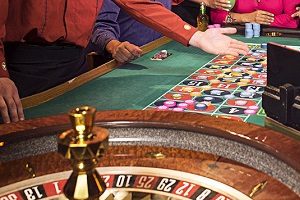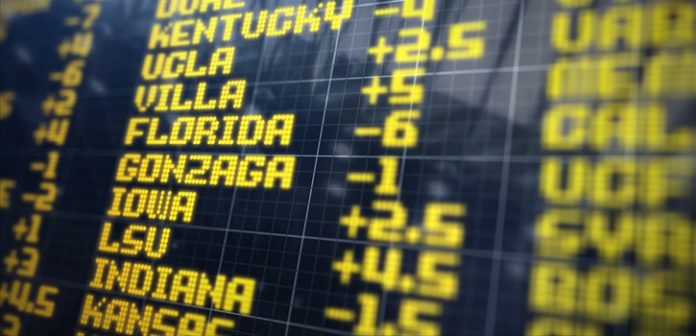It has been a rough few years for the state of Kansas from a financial standpoint. The Kansas legislature has been in an open war with the former governor, and government agencies from transportation to education have been affected. In the 21st century, the Sunflower state has sought to move its finances into the positive range through finding new streams of revenue. One of those streams of revenue has been gambling. However, the Kansas legislature has decided to move the legislature towards opening further gambling venues—such as online gambling and sports gambling. However, the debate is far from settled. Legislators have some questions they want answers before they commit to additional gambling in the state.
Gambling and Divisions in Kansas
 Kansas has been a politically divided state for decades. The eastern part of the state is mostly urban and industrial. However, once a traveler clears the capital of Topeka, the state becomes increasingly rural and agrarian. Often, this division means that the two halves of the state are in conflict with each other. The urban half tends to be more liberal and welcoming of new ideas (such as sports gambling) into Kansas. However, the rural half tends to be more conservative and unwilling to allow what they call a social vice into their area.
Kansas has been a politically divided state for decades. The eastern part of the state is mostly urban and industrial. However, once a traveler clears the capital of Topeka, the state becomes increasingly rural and agrarian. Often, this division means that the two halves of the state are in conflict with each other. The urban half tends to be more liberal and welcoming of new ideas (such as sports gambling) into Kansas. However, the rural half tends to be more conservative and unwilling to allow what they call a social vice into their area.
Kansas does have some gambling already in place. There are commercial casinos in the greater Kansas City area. As part of the overall effect of the tourist attraction in Dodge City, saloons (casinos) offer poker games and slots for people who are visiting the Old West town. There are also Indian casinos in central and western Kansas. The state also has greyhound racing and horse racing, as well as the Kansas lottery. Casino gambling alone creates revenues of over $30 million in the state every year.
The Debate
There are some Kansas legislators that are attracted to the potential revenue of sports gambling in the state, especially since the state currently receives no money from sports gambling. Economists have estimated that illegal sports gambling in the United States is at least a $150 billion industry. The legislators said that if the industry were regulated, the state would be able to get additional income from the sports gambling revenue. Other legislators have problems with the ethics of gambling, and the harm it may do to people and businesses. Morality also plays a role in whether or not legislators are for sports gambling.
Questions
 Many legislators have not decided whether they are for or against sports gambling. Instead, they have questions about how sports gambling will be managed in Kansas. For example, many legislators want to know how much of the revenue in the state would be going into the state treasury, how much will go to local economies, and how much will go to treatment for problem gamblers. Currently, this is the formula the state has. The largest percentage of tax revenues from gambling go towards the state. Local economies get a share, and a small (3%) percentage of the revenue goes towards gambling prevention.
Many legislators have not decided whether they are for or against sports gambling. Instead, they have questions about how sports gambling will be managed in Kansas. For example, many legislators want to know how much of the revenue in the state would be going into the state treasury, how much will go to local economies, and how much will go to treatment for problem gamblers. Currently, this is the formula the state has. The largest percentage of tax revenues from gambling go towards the state. Local economies get a share, and a small (3%) percentage of the revenue goes towards gambling prevention.
Other questions that legislators have are about how the sports gambling measure would be phased in. Would Indian tribal casinos and commercial casinos be allowed to offer sports bets? Some states have considered allowing the lottery to run sports betting. Sports bars have also expressed interest in allowing sports betting to happen in their bars. There are a lot of moving pieces to consider for the state, and legislators are not sure it is worth the effort. The population of Kansas is very small compared to larger markets for gambling, such as New Jersey. While the Kansas Legislature is set to debate the notion of sports gambling, there are clearly kinks to be ironed out before sportsbooks could be a reality.
Disclaimer: All images are copyright to their respective owners and are used by USA Online Casino for informational purposes only.












